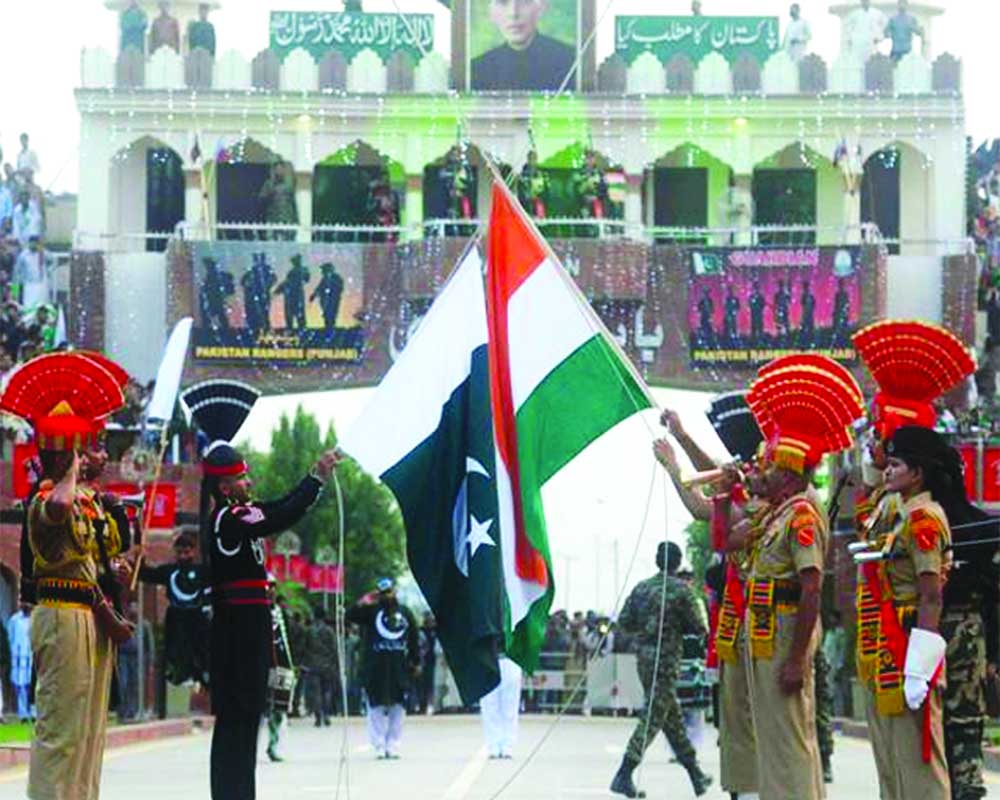Freezing economic ties won’t have much consequence but the cessation of diplomatic ties is not good for both nations
There is no doubt that after the Balakot strikes, which showed how Pakistan’s jihadi adventurism could be curbed while staying well under the nuclear threshold, and now the reorganisation of Jammu and Kashmir, which removes Kashmir as a pre-condition for diplomatic engagement, our western neighbour has to have a new script. Till then, it has to keep up the noise and bluster of aggression, hemmed in as it is by international pressure advising restraint against escalation and the US making its strategic relevance conditional upon helping it swing the Taliban in Afghanistan. It is also true that while both Balakot and the revocation of Article 370 may have seemingly shocked Pakistan, it was implicitly prepared for the boldness of Modi 2.0, its Prime Minister Imran Khan grudgingly admitting that at least he could get Kashmir moving. And now that Modi has indeed moved the cheese in Kashmir, Pakistan has no option but to wipe off the spilt milk. Since there cannot be naked aggression, it has done the next best thing — squeezing diplomatic ties with India, recalling its envoy and sending back ours, shutting down airspace and Samjhauta Express and suspending trade.
And contrary to perception, Pakistan isn’t imploding. Yes, its economy is in a bad shape and to that end it has taken steps, no matter how cosmetic, to crack down on terror factories and convince the Financial Action Task Force (FATF), which blacklists IMF and World Bank loans and grants to terror-funding States, that it is making progress. It may have lost its diplomatic edge but not been blunted completely as it has negotiating power with the Taliban. So it would be wrong to assume that it would come around to India’s terms or change tack on Jammu and Kashmir. Yes, India’s latest moves have clearly removed the possibility of talks as a continuing weapon of stalling under the garb of good intention. It has also reclassified the Kashmir issue as not one of aspiration but a creation of Pakistan-exported terror. Yet, robbed of its favourite pitches, Pakistan did counter Balakot robustly, shooting down our aircraft, denying its own F 16 loss and through an aerial dogfight at least showed that it was capable of reciprocal hitback, no matter what the diplomatic consequence. Similarly, even though it knows that raising the UNSC resolution bogey is fruitless, considering it has violated it with its own intrusions, it will make big announcements to take care of domestic imperatives. It is using the same logic to internationalise Kashmir, using its changed status as the raison-d-etre of renewed neighbourly hostilities, challenging India’s “internalisation” with “externalisation” of alarmist impacts.
Truth be told, the cessation of bilateral trade ties will hit it more as India has been downgrading volumes consistently, particularly after Balakot, considering trade was being used as a conduit for funding terror operations inside Kashmir. Our export bouquet to Pakistan is really limited considering it has never given us “most favoured nation” status though we had done so in the past. Most of what we sell to Pakistan are agri-products, which can easily be diverted to markets in Southeast Asia. Cross-border volumes shrank as India imposed 200 per cent customs duty on imports after Pulwama. While India’s exports to Pakistan stood at $2 billion, imports were about $500 million per year. Imports from Pakistan declined by 92 per cent to $2.84 million in March this year compared to $34.61 million in March 2018, according to commerce ministry data. Mutual trade makes up for really minuscule proportions for both in world markets. Of course, in a healthy scenario, both countries could have a significant volume of transformative trade in the region, some estimating a $37 billion potential, but that in any case has never been pursued. So there isn’t much to rue either. But yes, a diplomatic freeze doesn’t work any which way. A stalemate does give Pakistan time to recalibrate and reconfigure a new “bleeding cuts” policy. Meanwhile, the Government must take care of engaging with the mature civil society, as also legitimately elected political leaders of the Valley, who have so far invested themselves in our democratic processes, and not leave them out in the cold. Pakistan is precisely looking for this alienated space to occupy and justify its intervention. Given the brutality of the lockdown, with news trickling in of food shortages and pellet gun attacks, the Government shouldn’t compound the local’s sense of being let down. A flashpoint could then become a volcano.


























